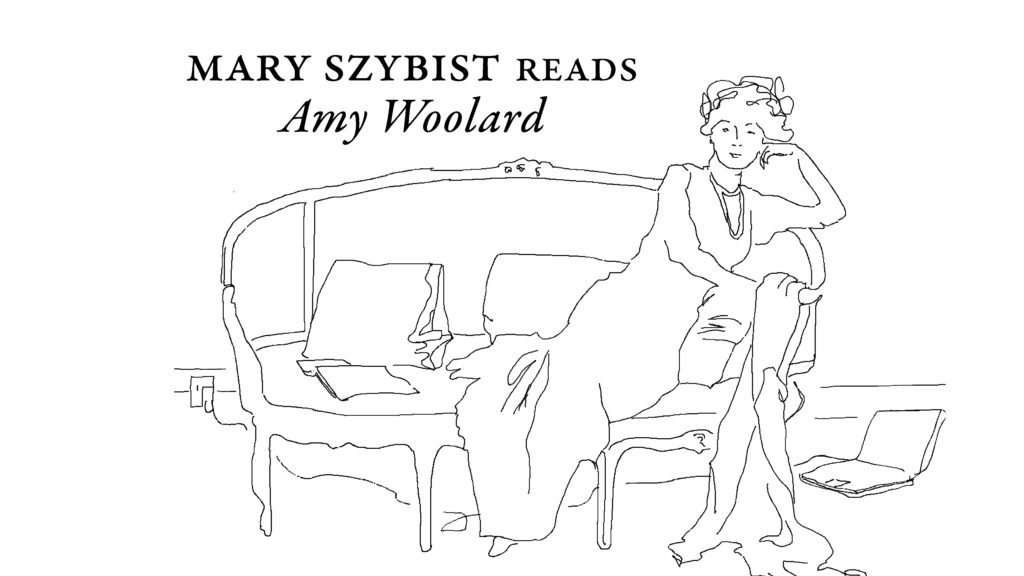In this series of videograms, poets read and discuss the poems getting them through these strange times—broadcasting straight from their couches to yours. These readings bring intimacy into our spaces of isolation, both through the affinity of poetry and through the warmth of being able to speak to each other across the distances.
“If By You You Mean We”
by Amy Woolard
Issue no. 230 (Fall 2019)
The apples are early this year, & the grass is late. The taxi is
Early & the past is late. The fist is late. The tooth—like the newsOf the tooth—broke both early & late. I’m telling you: this all
Really happened. I had a love I ripped through like it was bread.I had bread & cheese, apples & sugar on my every plate.
A sugar rose on my every cake. A love like a waterRing soaked into the grain of my kitchen table. Sugar, I don’t need it
Refinished. The way it happened, I was my own witness. When we wasTogether / everything was so grand. I love you like the fifty-two bones of the feet,
The fifty-four of the hands, the hell & the fast foam from a high-water waveSmoothing itself toward me like a flu passed through a kiss. I couldn’t
Keep anything down. So happened it was my bread & butter for yearsTo turn the tables of this town. I didn’t know a morning
That wasn’t the end of my night. I came in through your basementBedroom window. I brought a love like two forkless fists stuffed
With lemon cake. A love like the house spider that crawls in& then out of your open mouth during sleep, leaving only your waking
Tongue & its hustled memory of caught snowflakes from an early flurry.
Mary Szybist is the author of Incarnadine, winner of the 2013 National Book Award for Poetry.
from The Paris Review https://ift.tt/3ae2iDK

Comments
Post a Comment